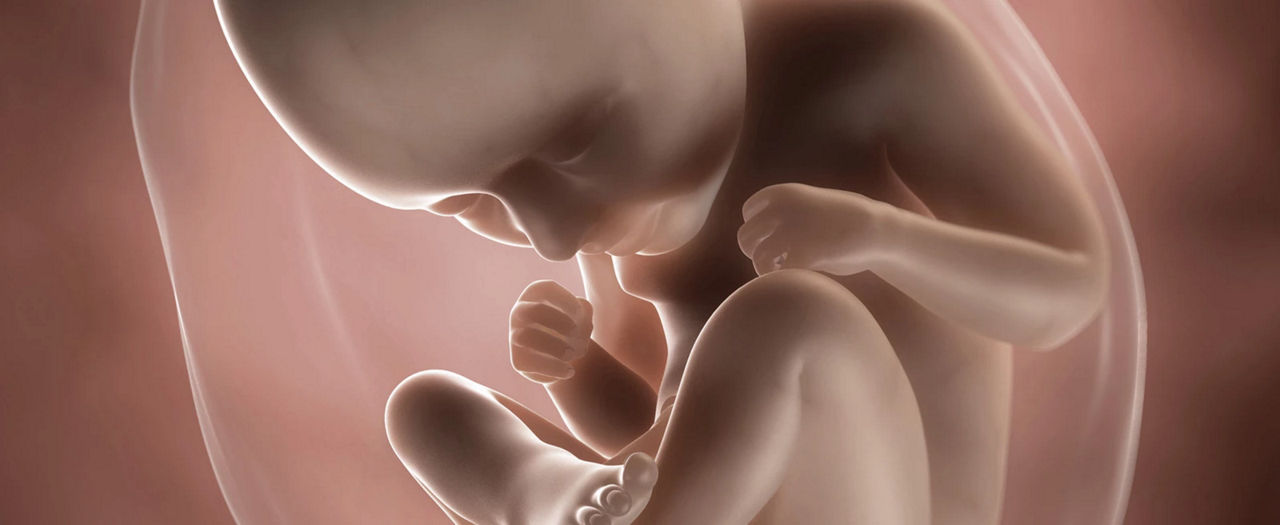35 weeks pregnant

Explore pregnancy stages week by week
Baby development at 35 weeks

Grow, baby, grow
Your baby is nearly ready to be born and is growing fast. Your body is under increasing demands and, at 35 weeks pregnant, you may find you have a tendency to become constipated. Enriching your balanced diet with more fibre should help maintain a normal bowel function.
Nearly ready for birth
By week 35 of your pregnancy, your baby weighs approximately 5.5lbs1, although this is just an estimate. Babies vary widely in size and weight at this stage and even an ultrasound can only give a range, rather than an exact figure2.
One certainty is that your growing baby now has less space to move around. From their curled up foetal position with their legs drawn into their chest, they can still squirm and shift around, and you may be able to see their movements on the surface of your bump3.
Your placenta has also grown and at week 35 weighs around 1.2lbs. This is over a quarter of the weight of your baby and roughly a sixth of your baby’s eventual birth weight4.
Internally, your baby’s lungs are fully formed and ready for breathing, and their central nervous system is becoming more mature1. Now able to suckle for feeds5, their digestive system is also almost ready for life outside the womb1.
Your body is also getting prepared, with milk production already under way. You may notice an occasional leak of colostrum – the nutritious first milk – from your breasts as you get closer to your due date5.
By week 35, your body is already preparing to feed your baby after birth by producing colostrum.
The fibre of life: Maintaining healthy bowel function
Your baby is getting much bigger now that you're 35 weeks pregnant, as is your bump, and you may find that you have a tendency to become constipated in this late stage of pregnancy6.
Including fibre-rich foods in your diet can help to maintain healthy bowel function, with different types of fibres having different functions in your digestive system. As a general rule soluble fibres can be fermented in the gut, while insoluble fibre is passed through whole. Gradually increasing your intake of both types of fibre should help maintain healthy bowel function for the rest of your pregnancy.
Gradually increasing your intake of both types of fibre should help maintain healthy bowel function in pregnancy.
Remember to drink plenty of water, and try doing some light exercise such as walking or yoga. Certain iron supplements may cause constipation so if you’re taking one, ask your healthcare professional if there’s another one you can try6,7.
Next steps
Fibre is only found in foods derived from plants. Soluble and insoluble fibres are often found together in foods so eating a variety of fibre-rich foods will provide a good mix of both types.
Try some of the following fibre-rich food swaps to increase your fibre intake:
- Mashed potato swap to jacket potato
- Orange juice swap to whole orange
- Vegetable soup swap to vegetable and bean soup
- Chicken curry and rice swap to chicken and lentil curry with brown rice
related articles
Read More

Need some help?
You can get quick answers to common questions in our FAQs.
Alternatively, if you need help with general pregnancy or baby advice, or maybe on using or ordering our products - our expert team are always on hand to talk about feeding your baby.
- Deans A. Your New Pregnancy Bible, The experts’ guide to pregnancy and early parenthood. 4th ed. London: Carroll & Brown Publishers Limited, 2013. P.47.
- Curtis GB, Schuler J. Your pregnancy week by week. 7th ed. Cambridge: Fisher books, 2011. p.495.
- NHS UK. You and your baby at 33-36 weeks pregnant [Online]. 2015. Available at: www.nhs.uk/Conditions/pregnancy-and-baby/pages/pregnancy-weeks-33-34-35-36.aspx [Accessed August 2016].
- Thompson JMD et al. Placenta weight percentile curves for singleton deliveries. 2007. BJOG; 116 (6): 715-720
- Regan, L. Your pregnancy week by week. London: Dorling Kindersley Limited, 2013. p. 204.
- Patient.co.uk. Common problems of pregnancy [Online]. 2013. Available at: http://patient.info/doctor/common-problems-of-pregnancy [Accessed August 2016].
- NHS UK. Common health problems in pregnancy [Online]. 2015. Available at: www.nhs.uk/conditions/pregnancy-and-baby/pages/common-pregnancy-problems.aspx#Constipation[Accessed August 2016].
Last reviewed: 11th June 2019




